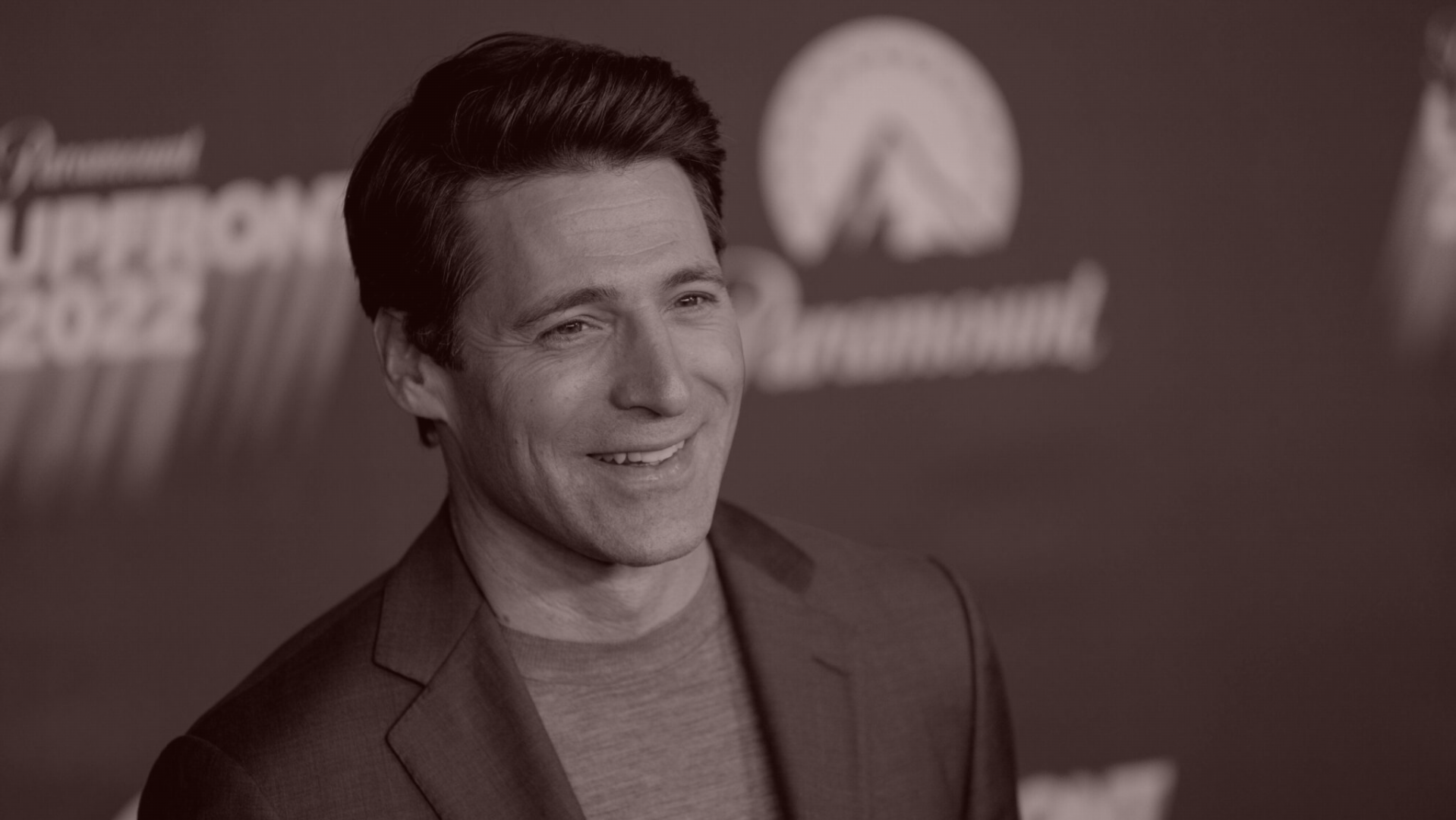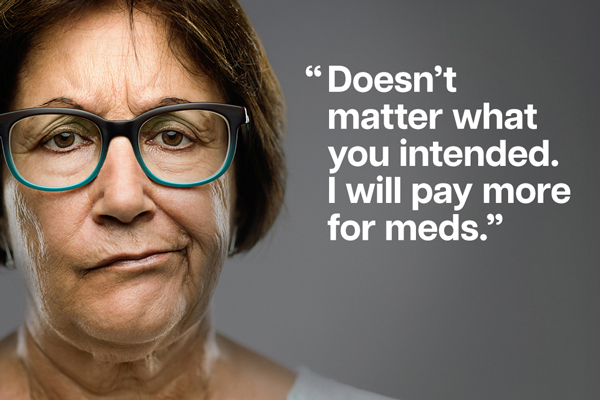 |

|
|
Greetings from Los Angeles, and welcome back to In the Room, my twice-weekly private email on the media and media people. In tonight’s edition, we go inside the fast-metastasizing, five-alarm shitshow at CBS News, where George Cheeks is standing behind network chief Wendy McMahon, even as his outgoing boss, Shari Redstone, criticizes the network’s handling of the Tony Dokoupil–Ta-Nehisi Coates affair.
Also mentioned in tonight’s email: Gayle King, Jacob Soboroff, Shams Charania, Cesar Conde, Chris Licht, Kim Godwin, Adrienne Roark, Shawna Thomas, Rebecca Blumenstein, Rachel Maddow, Jan Crawford, and Dr. Donald Grant.
But first…
- The Shams bomb: As anticipated, The Athletic’s Shams Charania has been poached by ESPN to serve as its new, post-Woj NBA insider. As my partner John Ourand noted earlier this week, Shams is expected to make less than half of Woj’s $7 million-per-year deal. Not surprising, these days.
- Cesar’s palace: NBC News Group chairman Cesar Conde is facing scrutiny from employees over his decision to delay the network premiere of Separated, the new documentary on Donald Trump’s child-separation policy from Errol Morris and NBC’s own Jacob Soboroff, until after the election. The film, which MSNBC Films acquired last week, premiered in Venice this summer and has been championed internally by Rachel Maddow and other network talent. Yet both Conde and NBC News editorial chief Rebecca Blumenstein have pushed to delay the film’s network debut, a move that is widely seen as an attempt to avoid accusations of bias during the campaign. It’s another reminder of the latent tension between talent and leadership that manifested itself during the mutiny over the ill-fated Ronna McDaniel hire, and never really went away.
- Last Lichts: The New York Press Club has announced that former CNN C.E.O. Chris Licht will deliver the keynote address at this year’s annual journalism conference, where he will speak about the future of legacy media. In an email, his spokesperson Glenn Bunting said the keynote “is one of several speaking appearances he has agreed to in the month of November. He will be a featured guest at Yahoo Finance’s Invest Conference on November 12. He has been invited to appear on a popular podcast and to speak at several tech/media investing events.”
Bunting then provided the following statement from Licht: “I plan to talk about the challenges and opportunities in journalism based on my experiences after more than two decades working in broadcast and cable news, including my time as chairman and CEO of CNN. Legacy media is struggling and will continue to struggle. Trust in media is at or near all-time lows. During the past year, I have learned so much by speaking to dozens of incredible people trying to fix what’s broken. No one, least of all me, has all the answers but I am looking forward to an interesting conversation about possible ways forward.”
|
|
And now, the main event…
|
 |
| The Tony–Ta-Nehisi Affair |
| Inside the totally predictable, somewhat absurd, and quasi-tragic fallout from Tony Dokoupil’s aggressive questioning of Ta-Nehisi Coates, the furious response inside CBS News, and the latest round of navel-gazing media existentialism. |
|
|
|
| On Monday, the anniversary of the October 7 attacks, Paramount Global chairwoman Shari Redstone was alerted to a fast-metastasizing, five-alarm shitshow at her company’s news division—and one that would turn out to be particularly personal for her. Earlier that morning, on a staff-wide call, CBS News C.E.O. Wendy McMahon and her deputy Adrienne Roark had stunned their teams by announcing that a recent CBS Mornings interview with the author Ta-Nehisi Coates had failed to meet the network’s editorial standards.
The executives didn’t specify the offense or offender, but they didn’t need to. McMahon and Roark were obviously admonishing the show’s co-anchor, Tony Dokoupil, for his interrogative on-air scrutiny of Coates and his new book, The Message. During a recent seven-minute segment, which had aired a week earlier, on September 30, the normally mild-mannered and affable Dokoupil came in hot to the roundtable interview with co-hosts Gayle King and Nate Burleson, the former NFL player. Dokoupil kicked things off by noting that The Message offered a one-sided account of the Israel-Palestine conflict that, absent Coates’s name and reputation and an American publisher, wouldn’t have been out of place in an extremist’s backpack.
Dokoupil eventually cooled his heels and focused on some serious and significant shortcomings of the book. In particular, he keyed in on Coates’s surprising decision not to include certain critical pieces of historical context, including, for instance, the First Intifada, the Second Intifada, and various terrorist attacks. Surprised, but seemingly game, Coates blithely pivoted away from these concerns and put forward a passionate but historically shallow view that appeared to offer little room for the Jews’ multi-thousand-year history of global persecution in his argumentative framework. He made clear that his sympathies lay with the Palestinians, and drew parallels with his own experience in post-Jim Crow America.
It was an exchange that tested the octaves of morning television, but it was also mostly quite civil and actually, in many moments, quite compelling: Two smart guys, actively disagreeing with one another, without resorting to screams or any sort of name-calling. And it provided a fascinating, microcosmic glimpse into one of the most significant fissures within the modern Democratic Party this election season. Indeed, in the aftermath of October 7, a surprising political realignment has recast Israel not as a consequential ally and refuge to a historically oppressed people surrounded by hostile nation-states, but rather a ruthless regional hegemon. In any event, at the end of the exchange, Dokoupil awkwardly joked that Coates would still be welcome to his place for the high holidays. Coates, cognizant that the interview had deviated from standard book-hawking fare, tried to laugh it off professionally, too.
Public scrutiny over the interview was relatively limited. Yes, it had garnered tens of millions of views and invited predictable criticism on Twitter from both sides. But Coates himself had not criticized the interview publicly, and The Washington Post had even commended the network for the unusually thought-provoking morning segment, declaring it “calm,” “heartfelt,” and “substantive.”
Internally, however, the fallout quickly gathered steam. Within 24 hours of the interview, McMahon had come under enormous pressure from several dozen employees in New York and abroad—foreign correspondents, morning show producers, seasoned veterans, and younger hands alike—who took issue with Dokoupil’s treatment of Coates, as well as what they perceived as his history of editorializing on the Israel-Palestine conflict. Meanwhile, a veritable alphabet soup of journalistic organizations—AAJA, SAJA, NABJ, AMEJA, etcetera—signaled plans to write letters of protest.
Last Tuesday, while the CBS News leadership was consumed with the network’s vice presidential debate, the issue was elevated to the network’s Race and Culture unit, which was formed in the summer of 2020, amid the George Floyd reckoning, and determines whether the “tone, content, and intention” of any segment or package are suitable for the network’s air. The unit, led by Alvin Patrick, determined that while Dokoupil’s questions and intentions were acceptable, his tone was not.
Meanwhile, the network’s Standards and Practices division, led by Claudia Milne, determined that Dokoupil had not followed the preproduction process wherein questions are run through Race and Culture and Standards and Practices. The following day, McMahon reached out to Dokoupil directly and informed him that the network would need to address the violation with staff, though she and Roark would spend the next three days deliberating over exactly how to do that. Ultimately, McMahon decided to have Roark announce the violation at the all-hands meeting, which angered a lot of Dokoupil’s friends and acolytes at the network.
On Monday morning, which happened to be the one-year anniversary of the October 7 Hamas attacks on Israel, Roark noted that Dokoupil’s indelicate tone failed to uphold “the legacy of neutrality and objectivity that is CBS News.” And then all hell broke loose.
|
|
A MESSAGE FROM OUR SPONSOR
|

|
|
Seniors are feeling the true cost of drug price “negotiations.”
Instead of saving money, some Medicare patients will pay more for medicines.
Others may not be able to get their medicines – 89% of insurers and PBMs say they plan to reduce access to medicines in Medicare Part D because of the Inflation Reduction Act.
Higher costs and less access. That’s not what seniors were promised.
Learn more.
|
|
|
|
|
| During the call, McMahon had asked her staff to keep the meeting “confidential.” But, as we all know, telling hundreds of journalists something remotely newsworthy on a video conference call is an invitation for a leak. More to the point, this particular micro-drama had the distinction of touching several highly charged political and cultural tinderboxes that had been roiling the CBS News staff for months and became especially acute after the Coates interview. These issues ranged from debates about domestic race relations and media bias to questions about Israel’s very existence and, honestly, ongoing existential fears about the future of TV news, itself.
For many of the network’s employees, the episode demonstrated the latest example of Dokoupil’s pro-Israel editorializing. Dokoupil is Jewish, and his ex-wife and children live in Israel, and many criticized him for bringing his personal emotions into the coverage. (Either way, he probably should have disclosed this fact.) A few weeks earlier, he had left one foreign correspondent visibly displeased on camera when he said, regarding a forthcoming Israeli ground invasion: “If Hezbollah thought that Israel was going to graciously take a year full of rockets, Hezbollah miscalculated.”
For others, including many of the network’s more veteran journalists, Dokoupil had actually upheld CBS’s journalistic values by asking tough questions of a guest with an overt anti-Israel bias. On Monday’s call, Jan Crawford, the network’s veteran chief legal correspondent, commended the anchor for preventing “a one-sided account from being broadcast on our network,” and admonished McMahon and Roark for “calling out one of our anchors in a somewhat public setting” simply for doing his job. “I thought our commitment was to truth,” she said. Several of Dokoupil’s defenders also lambasted their leadership for choosing to punish Dokoupil on October 7. (Indeed, even most of Dokoupil’s critics conceded that this was bad timing.)
Many within the media ruling class acknowledged that McMahon probably could not have handled this any worse, a point they reiterated after learning that CBS News had planned to follow up on Tuesday by bringing in Dr. Donald Grant, a self-described “mental health expert, D.E.I. strategist, and trauma trainer,” to moderate a staff-wide discussion on the issue. Shortly after I reported that detail, an Instagram post by Grant portraying Republican Senator Tim Scott as Uncle Tom surfaced on Twitter, inviting widespread scrutiny of CBS News from the right, both for its choice of Dr. Grant as well as its decision to invite a D.E.I. strategist and trauma trainer in the first place. CBS News ultimately decided not to include Dr. Grant.
|
|
|
| These tensions poured over into a subsequent all-hands meeting on Tuesday, which the CBS Mornings executive producer Shawna Thomas had organized for the express purpose of trying to foster greater communication across the network. During the call, which Dokoupil joined, one employee said the anchor’s treatment of Coates was “racist,” “xenophobic,” and “Islamophobic.” Another commended Dokoupil for challenging an author whose book read like an antisemitic polemic.
Some argued that Dokoupil’s editorializing put foreign correspondents in danger, while others complained that, by commandeering the interview, he had deprived his Black co-hosts, King and Burleson, from asking their own questions. Interestingly, one of Gayle’s prepared questions, I’m told, focused on Coates’ lack of scrutiny on Hamas’s attacks on Israel. Another question centered on Coates’ claim that Israel used the Holocaust as a moral badge. Still another questioned his decision to publish his book ahead of October 7.
Dokoupil listened respectfully to his colleagues throughout the meeting and expressed regret for anything that might have complicated their ability to do their work. Notably, however, he did not apologize for his interview. The meeting was later interrupted when a P.R. representative handed Thomas a note, which said that the details of the conversation were being leaked to me and that I was live-tweeting them. Thomas immediately cut off the feed for the bureaus that had been tuning in via video conference and, raising her voice, pleaded with the employees in New York to keep the details confidential. (For what it’s worth, I was getting leaks, but I wasn’t live-tweeting them.)
|
|
|
|
|
| For many at CBS News, and across the media industry more broadly, the Dokoupil affair represented a leadership failure on the part of McMahon, who had simultaneously exposed a star anchor and let an internal editorial debate metastasize into a full-blown controversy. And that’s how Redstone, an observant Jew and fervent Israel supporter, saw it, too.
Shortly after Tuesday’s meeting, I’m told, Redstone called Dokoupil personally to express her unequivocal support for how he had conducted the interview and her strong frustration with how McMahon and Roark had treated him, including their decision to address the matter on the anniversary of October 7. Redstone also reached out to George Cheeks, the president and C.E.O. of CBS, and one of Paramount’s co-chief executives, on Tuesday to express the same sentiments.
Finally, on Wednesday, Redstone publicly admonished the network’s leadership onstage during an appearance at New York’s Advertising Week. Sure, Redstone will leave the business once her deal with David Ellison and Gerry Cardinale’s RedBird closes, but this sort of public rebuke was unprecedented. “They made a mistake here,” Redstone said of the CBS News leaders. “I think we all agree that this was not handled correctly.” Redstone also stated that she did not think Dokoupil’s interview violated the network’s standards. “Tony did a great job with that interview,” she said. “I think he handled himself and showed the world a role model of what civil discourse is, that he showed that there was accountability, that there is a system of checks and balances, and frankly, I was very proud of the work that he did.”
Hours later, Cheeks issued his own carefully worded statement, in which he reiterated the network’s commitment to rigorous journalism and stood behind McMahon: “Wendy is an outstanding, accomplished leader,” his statement read, in part. “She and her leadership team are passionate advocates and stewards for CBS News standards; that won’t change. Reasonable minds in a newsroom will appropriately pressure test and debate internally to ensure balanced and objective coverage externally.”
Still, in light of Redstone’s comments, the discourse in media circles has obviously shifted from questions about Dokoupil’s future at the network to speculation about McMahon and Roark’s. Needless to say, they were put in an extremely difficult situation, tasked with addressing heated internal frustrations over one of the most fraught and contentious issues in modern society. But, ostensibly, that’s what the money’s for. And, no matter how you feel about the substance or style of the interview itself, the fact that it mushroomed into an all-consuming P.R. catastrophe obviously reflects on imperfect structural dynamics.
McMahon had the best intentions, several network sources said, but her failure to anticipate this outcome, and the reputational hit to CBS, has raised broader questions about her command of the delicate art of newsroom management. Before joining CBS News in 2021, McMahon had spent more than a decade at ABC News, where she served as a marketing executive before leapfrogging her superiors to become president of ABC Owned Television Stations—a business management job that never required her to run a newsroom or establish meaningful relationships with talent or, frankly, understand the business on a granular level. As any veteran of the trade will tell you, that is an art as much as a science: It requires anticipating leaks, managing optics, tending to vulnerable egos—and, of course, knowing how to deal with internal tensions discreetly and without humiliating star talent.
This sort of inexperience is the miserable leitmotif of this era in television news, the explanation for NBC News Group chairman Cesar Conde’s ill-fated attempt to hire Ronna McDaniel, which blew up into a multiday mutiny at MSNBC; former ABC News president Kim Godwin’s inability to mitigate the T.J. and Amy scandal, which ran for weeks on Page Six; and former CNN C.E.O. Chris Licht’s failure to manage nearly everything, from Don Lemon’s prolonged, months-long defenestration to an ill-received Trump town hall. Meanwhile, amid the structural decline of the industry, the networks pick these guys because their backgrounds make them unsentimental plan-followers and ruthless change-management artists.
On Wednesday, while CBS News was still scrambling to clean up the Dokoupil mess, the network was on to another micro-scandal: 60 Minutes had released two different transcripts of its interview with Kamala Harris, leading the Trump campaign to accuse the network of trying to edit the remarks in her favor. The error, whatever its cause, was an obvious violation of the CBS News standard guide, which states, verbatim, that “answers to different questions may not be combined to give the impression of one continuous response.” It continued, in a line that evokes the nostalgia and anxiety and wishful thinking of the era, “You cannot create an answer merely because you wish the subject had said it better.”
|
|
|
|
| FOUR STORIES WE’RE TALKING ABOUT |
 |
|
 |
|
 |
| Frieze Frames |
| Looking under the hood of Frieze London. |
| MARION MANEKER |
|
 |
| Appalachian Blues |
| On the MAGA disinformation epidemic disrupting Helene relief. |
| PETER HAMBY |
|
|
|

|
 |
|
|
|
Need help? Review our FAQs
page or contact
us for assistance. For brand partnerships, email ads@puck.news.
|
|
You received this email because you signed up to receive emails from Puck, or as part of your Puck account associated with . To stop receiving this newsletter and/or manage all your email preferences, click here.
|
|
Puck is published by Heat Media LLC. 227 W 17th St New York, NY 10011.
|
|
|
|










